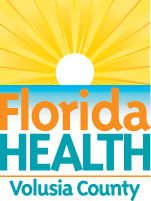It's a New Day in Public Health.
The Florida Department of Health works to protect, promote, and improve the health of all people in Florida through integrated state, county, and community efforts.
Tuberculosis
Florida Department of Health in Volusia County Epidemiology
- 386-274-0634
- chd64webmaster@flhealth.gov
-
Fax
386-274-0641 -
Mailing Address
P.O. Box 9190
Daytona Beach, FL 32120
The Florida Department of Health in Volusia County TB Control Program is an outpatient clinic specializing in providing treatment for active tuberculosis cases, conducting contact investigations and surveillance, and targeted screening and treatment of high-risk populations with latent tuberculosis Infection.
What is tuberculosis (TB)?
Tuberculosis (TB) is a disease caused by bacteria called Mycobacterium tuberculosis. The bacteria usually attacks the lungs. However, TB bacteria can attack any part of the body such as the kidney, spine, and brain. If not treated properly, TB disease can result in death.
How is it spread?
TB germs are released into the air when a person with TB disease of the lungs or throat coughs, sneezes, speaks, or sings. These germs can stay in the air for several hours, depending on the environment. People who breathe in the air containing these TB germs can become infected. This is called latent TB infection.
What is the difference between latent TB infection and TB disease?
People with latent TB infection have TB germs in their bodies, but they are not sick because the germs are not active. These people do not have symptoms of TB disease, and they cannot spread the germs to others. However, they may develop TB disease in the future. They are often prescribed treatment to prevent them from developing TB disease.
People with TB disease are sick from TB germs that are active, meaning that they are multiplying and destroying tissue in their body. They usually have symptoms of TB disease. People with TB disease of the lungs or throat are capable of spreading germs to others. They are prescribed drugs that can treat TB disease.
How can I get screened or tell if I have TB?
Tuberculin Skin Test: Get a TB skin test. This can be done at Florida Department of Health locations in Daytona Beach, New Smyrna Beach or Orange City or by your personal physician. A health care professional must check the skin test in two or three days. Your body’s reaction to the test reveals whether or not you have been infected with the TB bacteria. If the skin test is positive, you will be given other tests to see if you have TB infection or TB disease. This is the test offered by the Florida Department of Health in Volusia County.
QuantiFeron TB Gold: These are new tests available that use a blood sample to find out if you are infected with TB bacteria. The tests measure the response of TB proteins when they are mixed with a small amount of blood. Only one visit is required to draw blood for the test.
Chest x-ray: A chest x-ray is made by exposing a film to x-rays that pass through the chest. A doctor can look at this film to see whether a TB bacterium has damaged the lungs.
What happens when TB is reported?
The TB nurse at the Florida Department of Health in Volusia County will gather all pertinent information from the clinician and or staff making the report. The patient will be contacted for an interview so a contact investigation can be initiated. The nurse will coordinate and monitor the treatment of the patient and ensure all contacts are promptly identified, evaluated and placed on treatment if appropriate.
How is TB disease treated?
TB disease can be treated by taking several drugs for six to 12 months. It is very important that people who have TB disease finish the medicine and take the drugs exactly as prescribed. If they stop taking the drugs too soon, they can become sick again. If they do not take the drugs correctly, the germs that are still alive may become resistant to those drugs. TB that is resistant to drugs is harder and more expensive to treat. In some situations, the communicable disease staff at the health department will meet regularly with patients who have TB to watch them take their medications. This is called directly observed therapy (DOT). DOT helps the patient complete treatment in the least amount of time.
To provide a tuberculosis report by phone, please call: 386-274-0628 or fax the report to 386-274-0658.
More information on Tuberculosis infections is available at the websites:




Connect with DOH